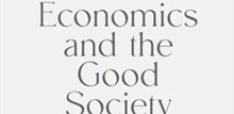'The Donors’ Dilemma' - Addressing the Structural Roots of Persistent Underdevelopment
This column by Thomas Pogge is part of Global Policy’s e-book, ‘The Donors’ Dilemma: Emergence, Convergence and the Future of Aid’, edited by Andy Sumner. Contributions from academics and practitioners will be serialised on Global Policy until the e-book’s release in the first quarter of 2014. Find out more here or join the debate on Twitter #GPfutureofaid.
While rich countries pride themselves on their development assistance and grand development initiatives, such as the Millennium Development Goals and their successors, poor people are falling ever farther behind, both globally and in most countries. For example, the share of the poorest 30% of the world’s population has fallen from an absurdly low 1.52 percent in 1988 to an even more absurd 1.25 percent in 2008 (Branko Milanovic, personal e-mail). These figures show that, whatever the positive impact of all the world’s development efforts may be, this impact is overwhelmed by powerful centrifugal forces that perpetuate the impoverishment and marginalization of the poorest 2 billion.
More and better development assistance may slow this relative decline of the poor. But it would evidently be better to address those centrifugal forces themselves. The last three decades have seen the emergence of dense and highly influential networks of supranational institutional arrangements, built through undemocratic and intransparent international negotiations that only the most privileged private actors (MNCs, industry associations, banks, hedge funds, billionaires) were able to influence through their respective governments. Reforming some of these institutional structures in light of the needs and interests of the world’s poor would impose some costs and opportunity costs on global elites. But many such reforms would likely be much more cost-effective than traditional development assistance. Constructed without any concern for the world’s poor, present supranational arrangements benefit various elites even in ways that entail vastly disproportional burdens on the poor.
What institutional reforms might, at low cost to global elites, meaningfully facilitate development among the poorest third of humankind?
1. Various protectionist measures distort trade and diminish trading opportunities for poor populations. To deter such protectionist barriers and help offset their effects, rich countries providing subsidies or export credits should commit to paying a gradually increasing percentage of the value of such subventions into a Human Development Fund.
2. Pollution and climate change impose huge costs on current and future populations, especially the world’s poor. To help deter harmful emissions and offset their effects, all countries should agree to pay a gradually increasing fee to the Human Development Fund, based on per capita emissions exceeding some safe threshold.
3. Arms exports to less developed countries fuel conflicts, civil wars and violent repression. To help deter such sales and offset the harm they facilitate, arms-exporting countries should agree to pay a gradually increasing percentage of the value of such exports to the Human Development Fund.
4. Sham transactions and mispriced trades among subsidiaries of the same multinational corporation enable it to realize its profits in jurisdictions where tax rates are low or zero. To help deter such profit shifting and help mitigate the effects of capital outflows and lost corporate tax revenues on poor populations, states should agree to require multinational corporations to pay to the Human Development Fund an alternative minimum tax (AMT) equal to the amount by which all national taxes they pay fall short of some gradually increasing percentage of their worldwide profits. All states should commit to cooperate in enforcing this AMT against any companies with operations in their jurisdiction.
5. To attract capital, some jurisdictions allow the maintenance of secret bank accounts, whose real owners and beneficiaries remain anonymous. Between 9 and 13 percent of all private wealth (worth $21 to $32 trillion) is estimated to be so hidden. Because such accounts facilitate corruption, terrorism, embezzlement and trafficking in drugs and human persons, states should commit to ending this practice as soon as reasonably possible by imposing collective sanctions on the offending banks and countries.
6. The populations of many less developed countries are burdened by large debts accumulated by their rulers for purposes that were not approved by or beneficial to the general public. In the future, such loans should be discouraged by states jointly stipulating that loans are to be recognized and enforced as genuine national obligations only if the borrowing government has been certified as minimally legitimate at the time of the loan by a Southern Debt Expert Committee (SDEC). Lenders and their home countries must promise not to exert pressure on countries to service debts incurred by previous rulers not certified by the SDEC.
7. The populations of some less developed countries suffer from massive natural resource outflows that are not approved by or beneficial to the people. States should agree that future such exports will be vetted by a Southern Resource Export Expert Committee to determine whether they are acceptable to or serve the interests of the population. Should the committee find that neither condition is met, then subsequent acquisitions are to be discouraged and partly compensated for by requiring buyers to pay a gradually increasing percentage of the value of the acquired natural resources to the Human Development Fund.
Fund raised by discouraging and reducing harmful activities could support other supranational institutional reforms. For instance:
8. To stimulate pharmaceutical innovation to fight diseases of the poor and to improve access to new medicines, states should agree to establish a Health Impact Fund (HIF) that offers to reward any new medical advance based on its health impact, provided it is sold at cost. The HIF could initially be financed at $6 billion annually and then be expanded as experience warrant.
By working to implement at least some of these global institutional reforms, the most affluent countries would be making a positive start toward addressing and reversing the relentless economic and political marginalization of the poor. This reversal should include a new practice of carefully examining the expected impact of proposed supranational institutional design decisions on global poverty. Such a reform path would put the world on track for the full eradication of all aspects of severe poverty by 2030.
Having received his PhD in philosophy from Harvard, Thomas Pogge is Leitner Professor of Philosophy and International Affairs and founding Director of the Global Justice Program at Yale. He is President of Academics Stand Against Poverty, an international network aiming to enhance the impact of scholars, teachers and students on global poverty, and of Incentives for Global Health, a team effort toward developing a complement to the pharmaceutical patent regime that would improve access to advanced medicines for the poor worldwide.


